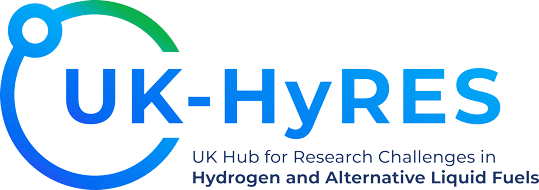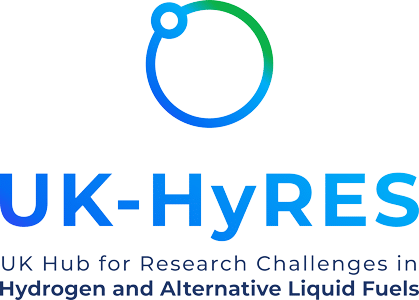UKRI EPSRC HYDROGEN CALL LAUNCHED TO ESTABLISH HYDROGEN & ALF RESEARCH HUB
2nd September 2022

On the 01/09/22 UKRI and the Engineering and Physical Sciences Research Council opened the second stage call of a two-step process for The Coordinator for Research Challenges in Hydrogen and Alternative Liquid Fuels.
The UK-HyRES project was initially funded by UKRI for six months from 1 April 2022. UK-HyRES engaged nationally with academic, industrial and policy stakeholders to discuss and identify research challenges the solutions to which will accelerate the deployment of sustainable H&ALF technologies to help the country achieve its legally binding net zero carbon emissions target by 2050 and hence contribute to mitigating disastrous global heating.
One of the main engagement routes was via facilitated workshops which were promoted widely in H&ALF and associated communities in the UK. The outcomes from these workshops will inform and shape the development of a UKRI Hub for research challenges in H&ALFs to start in spring 2023.
This call represents the second stage of the invite only application process, with the call document now open, we urge interested community members to give it a read.
VIEW & DOWNLOAD THE CALL DOCUMENT HERE >
Quoting some of the key criteria in the call:
Hub for research challenges in hydrogen and alternative liquid fuels
This hub will provide a focus for the UK research community, working in close partnership with businesses, governments, and administrations throughout the UK to tackle research challenges that underpin the hydrogen production, storage and distribution parts of the hydrogen value chain.
This hub will discover and develop cross-cutting solutions to the cross-sector challenges relating to hydrogen and hydrogen-based low carbon liquid fuels. Examples include, but are not limited to, research challenges such as:
- green hydrogen production
- production of low carbon liquid forms of hydrogen
- hydrogen storage
- materials
- utilisation
- cost
- safety
- environmental impact
- public perception and engagement.
They may also seek to address issues that will impact upon the hydrogen end-use sectors. These may include, but are not limited to, challenges associated with:
- lowering costs of hydrogen technologies
- increasing efficiencies of technological systems
- materials science and engineering
- hydrogen safety.

